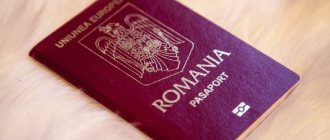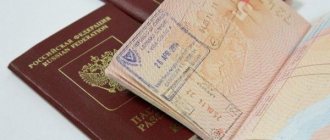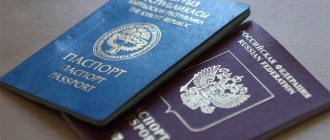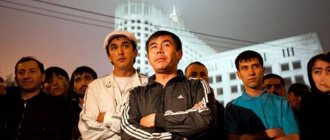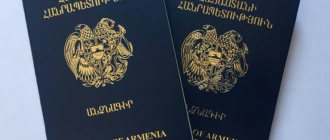Changing civil status is a procedure that is now enjoying unprecedented popularity.
Dear readers! The article talks about typical ways to resolve legal issues, but each case is individual. If you want to find out how to solve your particular problem , contact a consultant:
+7 (499) 110-56-12 (Moscow)
+7 (812) 317-50-97 (Saint Petersburg)
8 (800) 222-69-48 (Regions)
APPLICATIONS AND CALLS ARE ACCEPTED 24/7 and 7 days a week.
It's fast and FREE !
Almost everyone can find a country with the most suitable living conditions and achieve the necessary citizenship by fulfilling the requirements established by local legislation.
Sometimes it is not even necessary to renounce previous citizenship and the ability to return to your homeland if you wish.
Advantages of obtaining Russian
Russian citizenship gives a person the right to:
- official employment in Russian companies;
- receiving social benefits and benefits;
- participation in regional and federal elections;
- free medicine;
- free education.
The list of benefits is the same regardless of whether the status was obtained at birth or as a result of a special procedure.
For comparison, it is interesting to note what gives a person citizenship of other countries, for example, Israel:
- no extradition;
- the possibility of visa-free visits to another 147 countries;
- stable economic situation.
However, the same Israeli citizenship requires mandatory military service, which not everyone will like.
Residents of Costa Rica or those who have chosen Romanian citizenship have no such obligations.
Video: “What citizenship gives now”
In general order
Registration of Russian citizenship in the general manner presupposes that the migrant has been officially residing on the territory of the Russian Federation for at least 5 years and has a legal and permanent income.
The standard procedure consists of 7 steps:
- Crossing the Russian border, presenting a national (or foreign) passport and visa, filling out a migration card and going through established border procedures;
- Notification from the Main Directorate of Migration Affairs about arrival on the territory of the Russian Federation (the foreigner is registered);
- Obtaining a temporary residence permit (the document is valid for 3 years and is issued within the established quota);
- Registration at place of residence;
- Obtaining a residence permit (valid for 5 years with the possibility of multiple extensions);
- Renunciation of previous citizenship;
- Submitting an application for Russian citizenship to the Main Directorate for Migration Affairs (allowed only after a continuous 5-year residence in the Russian Federation).
Almost each of these stages is accompanied by the collection of documentation and visits to the migration service.
In simplified
Citizenship is issued in a simplified manner (i.e. faster) if the candidate (all points are taken into account):
- received a residence permit;
- completed registration;
- has a stable official income;
- formalized the renunciation of previous citizenship;
- Fluent in oral and written Russian.
The last requirement does not apply to persons who are:
- incompetent;
- disabled people of group I;
- men over 65 years of age;
- women over 60 years of age.
And for the following categories of candidates it is not necessary to have a residence permit:
- WWII veterans who issued Soviet passports;
- participants of the state resettlement program;
- persons who arrived from the countries of the former USSR and received registration in the Russian Federation before July 2002.
The right to change civil status in a simplified manner is granted to persons who:
- have a Russian parent permanently residing in the Russian Federation;
- were previously citizens of the USSR, live (lived) on the territory of one of the countries that were part of the Soviet Union, but remained stateless;
- were born in the RSFSR and were citizens of the USSR;
- have been married to a Russian man (Russian woman) for at least 3 years;
- are officially employed and are parents of minor Russians;
- are parents of Russian children whose second parent (citizen of the Russian Federation) was deprived of parental rights, was declared incompetent or missing, or died;
- worked in the Russian Federation for more than 3 years and received a Russian education before July 2002;
- are individual entrepreneurs and conduct legal business activities in Russia (with annual revenue of 10 million rubles or more);
- worked in the Russian Federation for 3 years and have the status of highly qualified specialists;
- are native speakers of Russian and reside in Russia on a permanent basis;
- received political asylum in the Russian Federation.
The presence of any of these grounds is documented.
Documentation
When applying for Russian citizenship, a migrant will need to present:
- application of the established form (in 2 copies, on paper);
- identification;
- certificate from place of residence;
- 3 photos;
- receipt of payment of state duty;
- papers confirming the change of surname (if any);
- residence permit;
- educational documents;
- certificates of knowledge of the legislation and history of the Russian Federation, the Russian language (documents have a prescribed form and can only be issued by an institution with appropriate accreditation);
- medical certificate;
- renunciation of previous citizenship.
For persons aged 14-18 years, the list is supplemented with notarized consents to the procedure from the child and from the second parent.
All documents are accompanied by notarized copies and translations into Russian. When accepting an application, a GUVM employee checks the documentation, after which he returns the originals to the applicant, and keeps the remaining papers.
Exam
A good knowledge of the Russian language is mandatory for migrants who wish to obtain:
- patent;
- work permit;
- RVP;
- residence permit;
- status of a citizen of the Russian Federation.
The presence of this skill is confirmed by a certificate, which can be obtained by passing a special exam, during which you will have to complete tasks on:
- reading (45 minutes);
- letter (45 minutes);
- grammar (45 minutes);
- auditory perception (30 minutes);
- oral speech (30 minutes).
Exam questions related to different blocks are issued on separate forms. The start of testing is preceded by detailed instructions, during which the following is explained:
- how to fill out the form (using a pen, taking into account language rules, etc.);
- how to enter answers;
- how much time is allocated for completion.
It is recommended that you ask any questions you may have before the exam begins. The use of reference books or technical means (tablets, phones, etc.) is prohibited. No additional time is provided.
The test is considered successful if the migrant scores at least 65% in each block.
Passing the exam is optional for persons who:
- have an education document issued in Russia or the USSR;
- were citizens of a country in which Russian is the official language;
- are pensioners;
- have not reached the age of majority;
- have a group I disability;
- lost their ability to work.
Candidates for the status of native speaker of the Russian language also do not have to take the exam, but in return they are assigned a special interview at the Main Directorate for Migration.
Features of obtaining citizenship
In practice, obtaining citizenship is not so simple. Applicants will have to prepare for the procedure. In particular, you need to collect documents, confirm income, provide photographs in the required quantity and submit an application. Individuals do not always receive approval. It is recommended to study in detail the specifics of the procedure.
Documentation
The list of documentation for citizenship is quite extensive. It is posted at the migration service stand. The list is also presented on the official website of the organization. The list of papers may vary depending on the individual circumstances of the situation. Usually needed:
- identification;
- 3-4 photographs;
- documentation confirming place of residence;
- check for payment of state duty;
- papers that serve as the basis for adjusting personal data if they have been changed.
The above list is the main one. Other documents may be included in the list depending on which category the person falls into.
Submitting an application
Having decided to obtain Russian citizenship and having ensured that the requirements are met, the person is required to draw up an application. It is issued in 2 copies. The document records:
- passport details;
- information about relatives;
- motives for obtaining citizenship;
- existing qualifications;
- presence of a criminal record.
The questionnaire is quite large. If the appropriate status is assigned to an adult child, in the future he will be able to help parents carry out a similar procedure if they want to stay in the Russian Federation for a long period.
The application must be submitted on a special form. It was developed by representatives of the authorized body. Data in the form is entered in the state language. Information can be recorded in words or block letters. The use of abbreviations and strikethroughs is unacceptable. Corrections are prohibited.
Only true information is allowed. If a citizen tried to deceive the authorized body, his demands will be denied. Errors, corrections or inaccuracies lead to a similar result. However, in a subsequent case, it is permissible to correct the questionnaire and resubmit it.
Income confirmation
An applicant for citizenship must demonstrate to representatives of authorized bodies that he has a means of subsistence and the ability to support his family. Earnings must be official. To confirm it, you need to provide a certificate in form 2 or 3 personal income tax. The type of documentation depends on the tax regime. To obtain a certificate, you need to contact your employer.
Photo
The documentation package must be supplemented with photographs. 4 photos required. They can be made in color or black and white format. The photo size is 3.5 by 4.5 cm. If children are applying for citizenship, their photos will also be required.
The photo should look natural. It is permissible to use only high quality matte photo paper. Eyes must be open. The presence of emotions on the face is prohibited. You need to relax. Filming must take place no earlier than 120 days. The period is counted from the moment of application. The use of hats is prohibited. There are exceptions to the rule.
If a person wears a headdress for religious reasons, filming may be done wearing it. However, the face should be clearly visible. Photography is performed without glasses. The exception is situations when a person wears them constantly for medical reasons. The person being photographed must be positioned in the center of the photo. No shadows or blurred lines are allowed. All contours must be clear.
Autobiography
When figuring out what is needed to obtain Russian citizenship, a person will be faced with the need for an autobiography. Information is displayed in chronological order. It is indicated from the moment of birth to the present. Be sure to reflect:
- FULL NAME;
- family information;
- information about the education received;
- information about work activity.
If there were problems with the law, you cannot hide it. The Migration Service can accommodate you halfway. However, it all depends on the specifics of the situation.
Oath
If a person receives Russian citizenship, he must take an oath. A similar innovation was introduced in July 2021. The text of the address is a kind of oath of a newly minted citizen. It states that the person undertakes obligations to comply with the legislation of the Russian Federation, respect traditions and protect the state.
Reasons for receiving
Russian citizenship is granted to a candidate if he:
- was born in Russia and had the appropriate civil status, but refused it (the restoration of the Russian Federation passport will be carried out according to an established program);
- native speaker of Russian;
- participates in the “Family Reunification” program (this is possible if the parents, spouses or children of the applicant are Russians);
- a highly qualified and sought-after specialist (the procedure is carried out expedited);
- has officially lived in the Russian Federation for 5 years and also has a stable and legal income;
- was a citizen of the USSR and received the appropriate passport;
- studied at a Russian university and officially found employment in the Russian Federation.
A person applying for Russian citizenship must be:
- adult;
- capable;
- unconvicted (this also includes the requirement not to be under investigation).
- stateless (formed a renunciation of previous citizenship).
The last point does not apply to candidates from Turkmenistan, thanks to an agreement with the Russian Federation on the admissibility of dual citizenship.
By marriage
If the basis for granting Russian citizenship is a marriage with a Russian man (Russian woman), then it is important that the spouses live together in Russia.
Six months are allotted for consideration of such applications.
The decision on the application will be positive if:
- the marriage was registered in the Russian registry office;
- at the time of application, the marriage lasts for at least 3 years;
- the applicant received a temporary residence permit and a residence permit.
Important: for persons married to a citizen of the Russian Federation, a temporary residence permit is issued outside the quota.
Native speakers
A native speaker is a foreigner who has a good command of spoken Russian and is related to someone who lived on the territory of the USSR or the Russian Empire.
The assignment of this status is carried out by employees of the Main Directorate for Migration. When considering applications, they pay attention to the following points:
- the applicant has no problems with the legislation of the Russian Federation;
- availability of legal income;
- registration of a written renunciation of previous citizenship (not required if this is provided for by international agreements).
However, the main part of the procedure is an interview conducted by a commission at the GUVM department to which the candidate applied.
The exact format of the event is determined by local authorities, but during the conversation, specialists must assess the applicant’s ability to:
- understand texts of various styles and various topics;
- freely perceive speech nuances (social, cultural and emotional);
- convey the required information to the interlocutor;
- master semantic, grammatical and syntactic speech systems.
If your candidacy is rejected, you can resubmit your application after a year.
If the decision was positive, then the status is maintained for a year (during this time it is necessary to have time to obtain citizenship).
Naturalization
One of the legal ways to obtain Russian citizenship is naturalization.
This procedure is possible if a person:
- capable;
- lives in the Russian Federation for 5 years;
- has a residence permit and legal income;
- knows Russian well;
- undertakes to comply with the Constitution of the Russian Federation;
- renounced previous citizenship (not always required).
The necessary documents are submitted to the migration service.
Important: Knowledge of the language is a general requirement when obtaining citizenship of Turkey, Australia and any other state.
Citizenship: what is it
It is enough at least that citizenship, in contrast to citizenship, has a legislative definition: according to Article 3 of the Federal Law of May 31, 2002, this is a political and legal relationship between a citizen of the country and Russia as a state entity, expressed in the rights assigned to them by law and obligations.
The essence of this relationship is that the state stands for the protection of human rights and freedoms, provides him with its protection when he is outside the country, in exchange for which the citizen undertakes to comply with the Constitution, laws and other regulations.
Taken together, all this constitutes the legal status of a citizen, which we will talk about a little later.
The law provides several ways to become a citizen of Russia, among them the most common:
- birth from Russians or on the territory of Russia from foreigners, if the parents’ countries of nationality do not grant the child indigeneity by right of blood;
- naturalization – that is, granting citizenship to foreigners and stateless persons.
Although, other options are possible, for example, the Crimean option - the choice of citizenship due to a change in the territory of the country.
What does double give
Citizens of the Russian Federation can obtain dual citizenship, if this does not contradict legislative norms and international agreements, retaining all their previous rights and receiving new ones.
But it should be taken into account that the range of responsibilities is also expanding (taxation, military service, etc.).
In this regard, one of the most successful countries for obtaining a second citizenship is Belize. There are many ways to reduce tax payments.
There are no fines or sanctions for Russians with dual citizenship.
But in fact, obtaining such status is possible only for persons who have become citizens of Tajikistan, with which Russia has concluded a corresponding agreement.
By becoming a citizen in countries with which such agreements have not been concluded, a person positions himself as having “two citizenships.” Usually the second option is less advantageous, since the possibility of smoothing out inconvenient moments is not provided.
Acquiring citizenship
There are three systems for obtaining citizenship :
- acquisition of citizenship based on descent, according to which a child acquires the citizenship of his parents, regardless of the place of birth and place of residence of the parents;
- acquisition of citizenship by place of birth, according to which the child acquires citizenship of the country in which he was born;
- acquisition of citizenship by place of residence, according to which a person acquires citizenship of the state in whose territory he resides.
>> Philosophical problems of man
From a legal point of view, a distinction is usually made between “acquisition by law” (birth, declaration, imposition of conditions, etc.) and “acquisition by administrative act,” naturalization. Regardless, the acquisition is based on traditional government practice. Citizenship in many nation-states is usually linked to ethnicity, but this is now rarely the only criterion.
Citizenship for Belarusians
Belarusians come from a country friendly to Russia, so they have the right to obtain Russian citizenship according to a simplified scheme: in just 3 months.
Also, they do not have to live in the Russian Federation for 5 years and wait for a special decree of the President (the issue is completely resolved through the GUVM). You only need to prepare a standard package of documents.
For a citizen of Ukraine
For Ukrainians, the most convenient way to become Russian is to apply with the necessary documents to the Russian consulate in their country.
But this opportunity is open only to persons who:
- have a Russian parent living in the Russian Federation;
- are minor wards or children of a Russian citizen;
- were citizens of the USSR and lived on the territory of the Union, but now they have no citizenship and are in Ukraine.
Where can I get a citizenship insert for my birth certificate? How can a Russian citizen obtain Dominican citizenship? Find out here.
Everyone else will have to go to Russia and resolve the issue there (in a general or simplified manner).
Basic conditions for acquiring citizenship of the Russian Federation
In order for a foreign national to initiate the acquisition of Russian citizenship, he must have social independence and reach the age of majority, and also meet at least one of the conditions set for candidates for citizenship, namely:
- If a visitor permanently resides in the territory of the Russian Federation, having the legal status of a residence permit (residence permit), for 5 years. It should be taken into account here that this condition does not imply a permanent stay, since a person has the right to leave the country’s borders for no more than 90 days during the last 12 months.
- When a foreigner can earn his own living, having an official source of income - work in our country or abroad, or his own business that generates profit. He is obliged to confirm his security with official papers - a 2-NDFL certificate, bank account statements, etc.
- If the visitor has passed qualifying exams in the Russian language and the basics of history and social studies, thereby confirming that he has the appropriate knowledge.
- A visitor is required to undergo medical examinations in accredited medical institutions of the country and obtain certificates stating that he is not a carrier of dangerous infectious diseases, does not suffer from mental disorders and is not prone to manic use of alcohol, narcotic and psychotropic substances.
- One of the main conditions is the renunciation of one’s native citizenship, since the Russian authorities do not imply that a migrant will acquire dual citizenship.
- Every naturalized immigrant is required to take an oath to uphold our Nation's Constitution and all active codes.
Important! In addition to all other requirements for migrants, this is legal purity, that is, they should not be wanted, have a criminal record or an open criminal case in their home country.
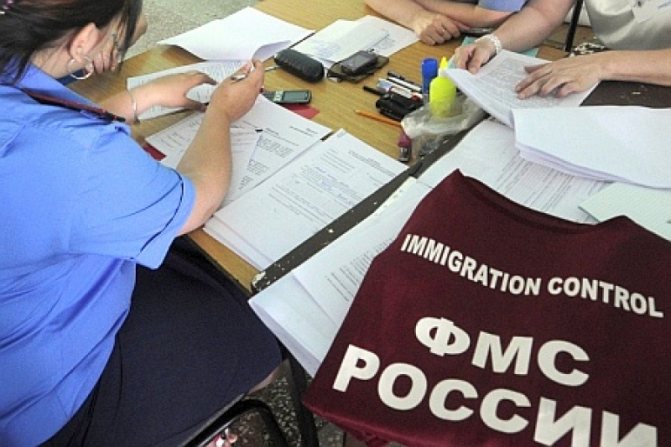
FMS work
Deprivation
Citizenship is terminated in the following cases:
- voluntary refusal of a person;
- moving to another country;
- cancellation of the decision to assign civil status (due to the provision of false information during registration);
- adoption of the citizenship of a guardian, adoptive parent or parent.
The procedure is carried out by the migration service in a simplified manner if:
- a person permanently resides in another state;
- the refusal is issued on behalf of a child whose parents are citizens of another country.
When making a voluntary exit, the citizen addresses the application to the President of the Russian Federation.
Important: the application will not be accepted if the person has debts to the state or has not fulfilled all of his civil obligations.
What are the similarities and differences between the concepts of “citizenship” and “nationality”
All of the above allows us to concretely formulate how citizenship differs from citizenship and how these concepts are similar. Their similarity, of course, is that they both represent a political and legal connection between an individual and a subject of supreme power, which determines the legal status of this individual within the framework of relations with this subject of power, other individuals, and so on. It should be noted that in this context, many languages of the world denote both citizenship and nationality in one word, distinguishing them only by context.
Nevertheless, the legal nature and relationship between the concepts of citizenship and nationality allows us to identify three main differences:
- firstly, it is the subject with whom the relationship is determined. In the case of citizenship, we are talking exclusively about the ruler, who is the sole embodiment of power, autocracy. Citizenship provides for a connection with the state, and in a broader sense, since citizenship is primarily an instrument not of power, but of a guarantee of rights;
- secondly, this is the nature of the connection - the fact is that the relationship of citizenship is a one-way connection, expressed in loyalty to the ruler; loyalty to his subjects on the part of the monarch, in principle, was not provided for. Citizens can count on a two-way relationship with the state, within which the citizen, just like the state, is assigned certain rights and obligations;
- thirdly, this, of course, is the regime of government - citizenship is possible only in countries with a monarchical form of government, where the source of power is the ruler, king or other monarch.
The difference between citizenship is that the latter is a characteristic of a democratic country, although it can also be used for totalitarian regimes, and even for the same monarchy, which is the case today, for example, in Saudi Arabia or the UK. In the latter, by the way, there are both citizens and subjects, who are perceived in a broader sense far beyond the borders of the country itself.
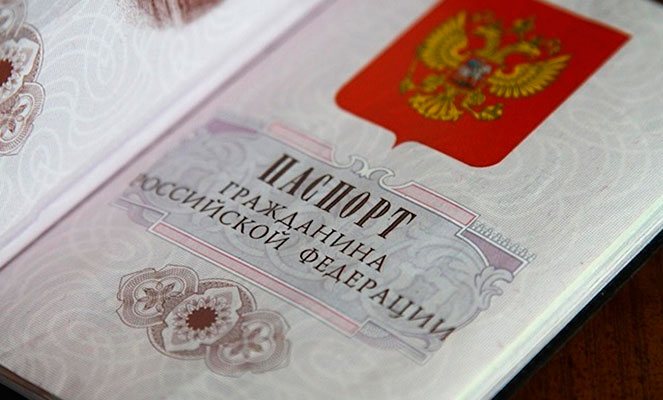
Recovery
Re-obtaining Russian citizenship is possible if the status was canceled when the person was a minor, and the reason for this was:
- acceptance by his parents of citizenship of another state;
- taking him under guardianship by foreigners.
Persons who restore their previously existing civil status can submit an application within 3 years after receiving a residence permit.
If the applicant meets the standard requirements, the procedure is carried out as quickly as possible.
Russian citizenship for Ukrainians
Obtaining Russian citizenship by persons from Ukraine is currently very important due to the internal socio-political crisis that has been ongoing for more than one year. Ukrainians have two ways to become holders of a Russian passport: in a general or simplified manner. Also, residents of this country can submit an application both to the Russian consulate and directly on the territory of the Russian Federation.
Obtaining status at the Russian diplomatic mission located in Ukraine is a quick, simple and least expensive procedure. This is due to the fact that there is no need to travel to a neighboring state, obtain a temporary residence permit, residence permit, or registration. All you need is a documentation package. However, not all Ukrainians can apply for a Russian passport in this way, but only a small category of citizens:
- having a Russian parent living in the Russian Federation;
- who are children whose parent (guardian, trustee) has Russian citizenship;
- who previously had USSR citizenship, lived in countries that were part of the USSR, are located in Ukraine and are stateless.
All other persons apply to the Main Directorate for Migration Affairs of the Russian Federation regarding the assignment of citizenship.
Ukrainians can take part in the State Resettlement Program or obtain native speaker status, which will allow them to obtain a passport at a preferential rate and in a short time.
How to get American
For persons wishing to become Americans, there are a number of ways to obtain US citizenship:
- entering into a marriage with an American ;
- participation in the government lottery (Green Card drawing);
- naturalization (based on long-term, permanent and legal residence in the States);
- birth in America (“by jus soli” the United States grants the child citizenship automatically);
- investing money in any sector of the US economy (from $500,000 or more), or purchasing expensive real estate;
- serving in American military units on a contract basis.
However, it must be taken into account that the current political situation may prevent a Russian citizen from using any of these options.
EU
The main ways to obtain EU citizenship:
- departure for permanent residence in Europe (first it is recommended to settle in one of the EU countries, and then apply for a residence visa);
- restoration of a family with ethnic roots (applies to cases where one of the relatives already lived in one of the EU countries);
- entering into a marriage with a citizen of the chosen country;
- birth in the EU (provided that one of the parents already has citizenship of the relevant state);
- investing (for example, purchasing debt obligations of a country or expensive real estate on its territory).
How can a Russian citizen obtain Egyptian citizenship? What are the conditions for obtaining Israeli citizenship? Find out here.
Is it possible to automatically change citizenship? Read on.
Almost everyone knows what citizenship of each EU country gives:
- High-quality education, high-quality medicine, the opportunity to freely visit 157 countries of the world, etc.
- Citizens of EU countries (Romania, Bulgaria, Cyprus, Poland, etc.) can reside unlimitedly in any part of the European Union.
Therefore, the answer to the question “why” in this case is obvious; you just need to choose the most suitable way to achieve your goal.
New life
For some people, second citizenship automatically means a new start in life. For example, the Maltese passport solves many complex problems. Firstly, if there is an older child in the family, then when he moves with his parents, he gets the opportunity not only to study without a student visa. Discounts for higher education become available for such children! This also implies good preferences when applying for a job, since after receiving a diploma the student will not need a separate visa for employment. Also, a child who grew up in the EU receives all rights on an equal basis with other European citizens.
Also, a second passport gives you the opportunity to use high-quality healthcare, which, as you know, is very well developed in Europe. There will be no problems seeing a doctor after obtaining citizenship.
If you or a family member is running a business, a second passport allows you to conduct business without delay. For example, if there is no citizenship, then a person will have to repeatedly apply for a visa to travel to the country where his business partners work. But if there is a second citizenship, for example, Malta, a person can easily travel around European countries without a visa and solve his problems.
The procedure for obtaining Russian citizenship by native speakers of the Russian language
Russia is loyal to those wishing to obtain Russian citizenship from countries that are mentally close in cultural heritage to the Russian Federation. According to the provisions of Art. 33.1 of Law No. 62-FZ (dated May 31, 2002) this category includes:
- fluent in Russian;
- using Russian in everyday life and at home;
- permanent residence on the territory of the Russian Federation or the presence of direct ancestors of residents of the Russian Federation or previously living on the territory of the RSFSR, USSR.
Recognition as a “native speaker of Russian” occurs through an interview. The commission evaluates the candidate’s skills in understanding Russian texts of varying degrees of complexity (philosophical, artistic), including the ability to understand hidden meaning, phraseological units, etc. The applicant must demonstrate fluency in spoken and written Russian.
The rules for conducting interviews are approved by Appendix No. 3 to Order of the Ministry of Internal Affairs No. 738 (dated September 28, 2017). The commission is formed from employees of the Ministry of Internal Affairs (at the territorial level) and at least two representatives of educational institutions. A native Russian speaker submits an application for an interview. A positive decision of the commission means receiving a certificate of “native speaker of the Russian language”, a negative one means the right to re-pass in 12 months. The applicant also has the right to appeal the negative decision of the commission in court. The algorithm for obtaining the status described above can be presented in the following sequence:
- Registration of residence permit.
- Renunciation of previous citizenship.
- Applying for an interview.
- Obtaining a certificate.
To further obtain citizenship, you must provide the package of documents described in the section “Obtaining Russian citizenship in a simplified manner.”
Reinstatement of Russian citizenship
One of the alternative ways to obtain citizenship is its restoration. It is clear that only foreigners who once already had a Russian passport, but for some reason lost it, will be able to take advantage of this opportunity.
The procedure for restoring citizenship is distinguished by benefits and privileges. Applicants have the right to submit an application after 3 years of living in the Russian Federation with a residence permit. Under the standard procedure, this is permissible only after 5 years.
It is possible to re-obtain Russian citizenship in the following situations:
- the child’s citizenship was revoked due to the fact that his parents took citizenship of another country (that is, the minor received a new citizenship automatically);
- The child's citizenship was changed when foreign citizens took him into custody.
Candidates are required to fulfill a number of requirements of Russian legislation, have a legal permanent income, and respect the rights of other citizens. If there are grounds for restoration of status, the process itself proceeds extremely quickly.



